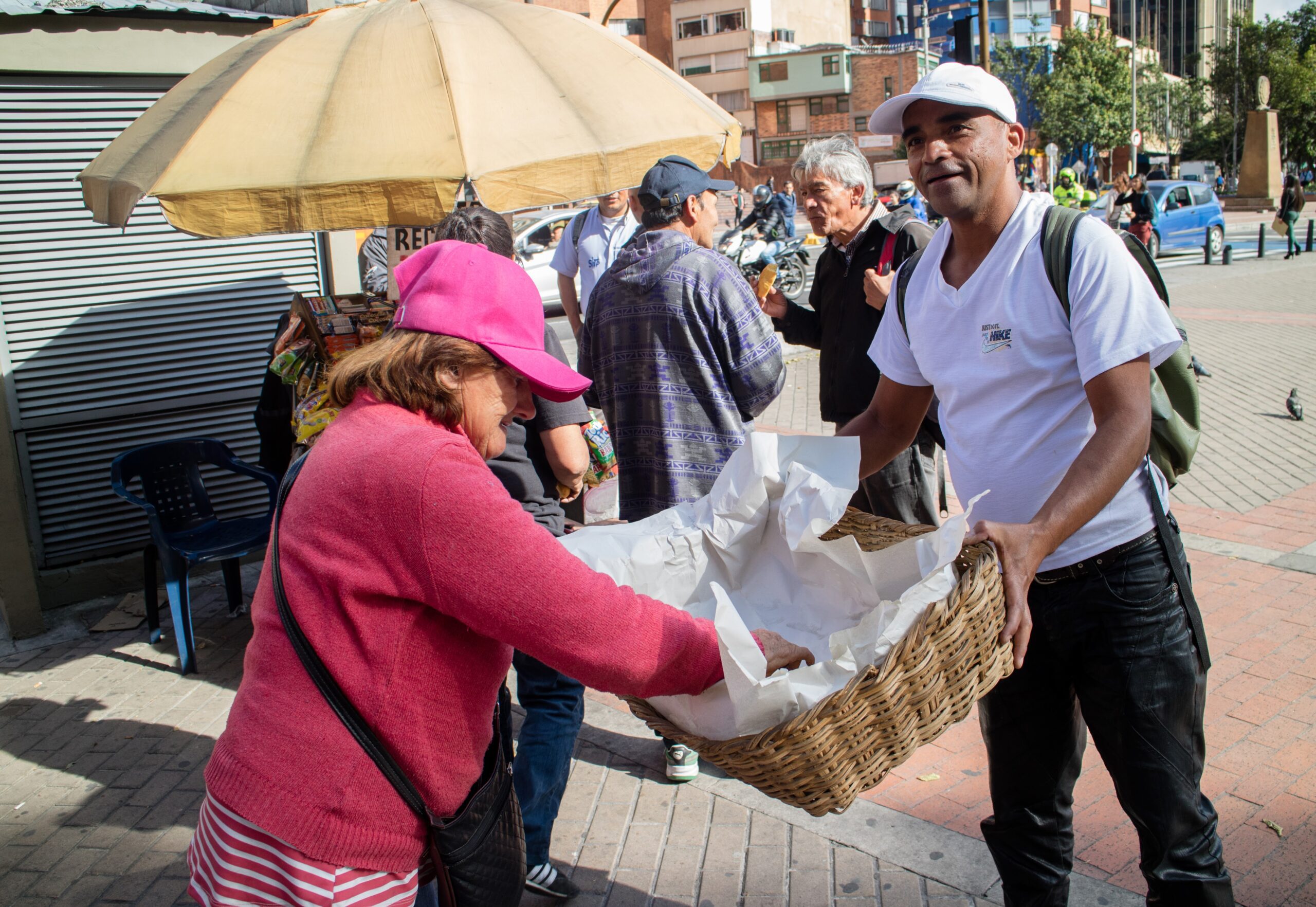“The hand that gives is always uppermost; the hand that receives is always lower.”
—African proverb
A Congolese pastor reshaped my understanding of giving and receiving.
The last time I saw her was at the Global Assembly of Mennonite World Conference (MWC) in Paraguay in 2009, where she expressed gratitude to my wife and me for the financial support our local congregation in Colombia had given her and her church in DR Congo.
Sacrificial hospitality
I had first met her and her husband during a visit to Kinshasa in 2007. At that time, my local congregation in Colombia was seven years old. Because we were growing, we faced the challenges of not having a place to worship and the enormous financial needs of our church planting project.
Back in Kinshasa, I was invited to preach on a Sunday morning in the church of that couple who would become my friends. Like my church in Colombia, this congregation did not have a building. Their church met in a tent with no walls. In that context of extreme poverty, I was blessed by having lunch after the service. I realized later that the church members had sacrificed their lunch to provide my lunch.
When I got back to Bogotá, the call to support that congregation was clear, even more so when we received news of the husband’s death, leaving behind his children and his wife, who became the senior pastor of the church. My local congregation decided to raise funds for the church in Kinshasa and for part of the educational needs of the pastor’s children.
A higher priority
We knew that we would not advance in our church-building project by doing so, but the Congolese church became a higher priority for us than ourselves.
Some colleagues in Colombia could not understand how my local congregation, having such immense financial needs, was sending money to support a church in Congo. We were accustomed only to receiving.
For over 60 years, Colombian churches had received foreign support for many endeavours: disaster responses, church planting, peace work, education and social development. Even today, the needs in Colombia keep growing!
Giving, however, is a foundational aspect of human beings. Giving is an integral dimension of being created in God’s image.
Interdependent generosity
We know financial aid in the form of charity can humiliate the recipient. It can create dependency, reinforcing rather than breaking the cycle of deprivation. Being created in God’s image implies being self-sufficient and interdependent.
The highest form of aid enables the individual to become a source of support for others. Humanitarian relief is essential in the short term, but, as we see in the Bible, in the long run even a person dependent on the support of others must give support to others. Giving is an essential part of human dignity.
During its 100-year relationship with MWC, Mennonite Central Committee (MCC) has nurtured and strengthened our global Anabaptist church by offering support to regional churches and local congregations in times of war, natural disasters, displacement and poverty.
Today, many regional churches and local congregations are developing the capacity, the necessary values and convictions to create structures that can do the same, using their local resources to support others near and far. These churches can learn from MCC’s experience, following MCC’s best practices, avoiding mistakes made in the past while learning about service values and the importance of good planning and management. Helping others in a way that they can in turn give is vital, restoring dignity through projects shaped by love and justice.
Anabaptist churches in Africa, Asia, Europe and Latin America are reaching beyond themselves in mission, including through relief, development and peacebuilding. Around 50 Anabaptist service agencies and church commissions carry out our global church’s mission efforts.
Yet more remains to be done in activating the church’s potential for ministries of relief, development and peacebuilding. More than half of the national Anabaptist church conferences belonging to MWC have not yet developed such service agencies or other structures to extend Christ’s love through practical ministries of relief, development and peacebuilding. The risk of dependency still exists.
Mennonite World Conference is building capacity for our churches to serve others through the Networks. Anabaptist churches around the world who have started local organizations for mission, service, education and peace can support each other. Meeting as equals in the Networks, they teach and learn from each other as they serve in their regions.
Reaching beyond ourselves
As we move into the second century of the relationship between MCC and MWC, I hope we can dream together:
- Can we imagine a future in which each national church is actively involved in giving local support to help others in need?
- Can we strategize together to accompany the poor to support others?
- Can we intentionally plan how to help churches that have historically only received in becoming donors and gift-givers?
Transformed by giving
My local congregation in Colombia never did construct the church building we wanted. However, the lives of our members were transformed by the blessing of giving.
In addition to the support we sent to DR Congo, we started a scholarship project to educate children in Colombia’s three areas of extreme poverty. Dozens of children received support for several years.
We contributed to the financial support of Colombian missionaries and service workers ministering in other countries.
We learned through experience the truth of Jesus’s words quoted by Paul in Acts 20:35: “It is more blessed to give than to receive.” (NRSVue).
Over the next century, may we collaborate to see more and more churches worldwide standing together to support others who need to experience God’s love as they themselves have received it.

César García
General Secretary
Mennonite World Conference
A version of this article first appeared in Intersections: MCC theory and practice quarterly (Winter 2025, Volume 13, Issue 1).
